In the fourth of a seventeenth (and wildly popular) series, we interview some of the most talented up-and-coming Sommeliers in Ontario. A few years back I was flicking through the pages of a locally published periodical and noticed that when it came to Sommeliers it was the same names that seemed to pop up over and over again. I was also becoming gradually cognisant of the fact that we more established wine folks were well and truly “losing our edge” to these young blood Sommeliers. Being well aware of the depth of new talent that was out there I finally decided to get together with a couple of fellow Toronto Sommelier “Old Guard” (Anton Potvin and Peter Boyd) to assemble a line of questioning that would give us an entertaining insight into the minds of these rising stars.
This week we speak with Michelle Ratzlaff, a woman who has worked at some great spots all over the city, and is currently working as the Operations Manager with Nicholas Pearce Wines…
Good Food Revolution: So Michelle, what is it that you are doing these days?
Michelle Ratzlaff: I am the Operations Manager at Nicholas Pearce Wines. What exactly does that mean? Well, every day it is a little bit different, but basically I oversee the day-to-day management of the agency.
GFR: And what kind of experience and training wine-wise did you have before doing what you do today?
MR: I spent about two and a half years as Head Sommelier at The Chase, where I worked with Jordan Alessi. Prior to that I worked at both Skin and Bones and Enoteca Sociale in an assistant sommelier role, working with the famous (and some might say infamous!) Peter Boyd. As for education, I did my sommelier diploma with the International Sommelier Guild here in Toronto.
GFR: How would you describe your role with the lovely Nicholas Pearce at Nicholas Pearce wines?
MR: How long do we have? My day-to-day role covers many aspects of the business. I work directly with our winery partners on wine allocations, trying to ensure that they are shipping on time, which can be a never-ending battle. I also look after a core group of restaurants and ensure cases are getting out to the restaurants daily. In addition, I work closely with the sales team and keep them up to date on stock levels and manage all the restaurant allocations, and also work with the LCBO on new retail offers and releases. So as you can imagine, there are a lot of moving parts.
GFR: And what did you learn from your many roles on the other side of the fence that you can apply to your current position? Are there many transferable skills there?
MR: There are a lot of transferable skills, for sure. I think the biggest and most obvious one is customer service. Really in any position in the hospitality industry this is your primary focus – it just happens that for us the customers are restaurants. I do feel like I have an advantage as a former buyer myself, because I’ve seen the good and the bad from the other side, and I know what I found valuable and helpful from agents. So, I’m able to draw from that experience and incorporate it into my work.
GFR: I’m often speaking to working Sommeliers who are considering moving into the world of wine sales. What advice would you give them?
MR: I would say that it takes patience. It is not an easy transition, but it helps if you can do what I mentioned above and ask yourself what you as a wine buyer appreciate in a sales rep, then do your best to be the sort of rep you would have liked to deal with as a buyer. If you can do that, it will only be a matter of time until you build momentum, but you have to stick with it. Relationships are so important in the hospitality industry in general and I think if you can foster those relationships and provide top notch service then there is a lot of opportunity for success.
GFR: Do you ever miss working on the floor as a Sommelier? To be honest with you, and for the record, I don’t. At all.
The deadly combination of my bad back and a growing intolerance towards ignorant customers would make me a hell of a liability for any restaurateur. Anyway… enough about me!
MR: Yes and no. I’ve learned so much and am really enjoying working with all of our winery partners and restaurants and to be honest, I can’t imagine at this point having to work on a Saturday night or do inventory on a Sunday morning. However, every once in awhile I do reminisce about restaurant life. When I first left the floor it took some time to get used to the change in schedule. I had no idea what to do with myself on the weekends – though I quickly figured it out. But I do sometimes miss the engagement with guests and the rush on a busy night – that intense, heart-racing pace of a busy service with lots of wine being talked about, poured and most importantly enjoyed by guests.
GFR: And what skills did you find to be transferable?
MR: As I mentioned, I think the number one skill is customer service, hands down.
GFR: What’s your whole take on the whole tip argument? I’ve never been part of the tip pool as I have always been in management, or in a private club with no tips. In my mind the tip system in North America is completely broken… and then we have the minimum wage aspect! A veritable knot of vipers. A huge subject, I know, but I would be interested to hear your thoughts.
MR: Yes, it’s a very complex issue. I have worked with a few restaurants with tip pools, which I did believe in. The restaurant requires so many people in order to function properly. I think it will be a difficult transition for the industry and for FOH staff specifically but there are changes needed. The wage disparity between various positions within the restaurant cannot continue as it has, I think it is possible that it will make some reconsider their role, but that will be a bridge we have to cross when the time comes.
GFR: Now, how do I word this? Have you drunk the “Natural Wine Kool Aid”? I’m just kidding, kind of… I’m fed up of “natural wine” zealots with nothing but derision for those who feel otherwise. Saying that, I do feel that there are some astounding “Natural” wines out there, so don’t get me wrong. How do you feel about the scene? … perhaps I just have a very low tolerance for volatile acidity, I don’t know… but there is some right old crap out there.
MR: Ah, the question of the hour. I have not drank the natural wine kool aid, so to speak. But that is not to say that there aren’t some amazing wines under the “natural wine” umbrella – there absolutely are, and a lot of them. However, I don’t think that calling yourself natural means you should get away with traits that generally should be considered faults. Like anything, the wine needs to stand on its own merits. It shouldn’t be judged simply by being natural, but on the individual wines themselves. I think there needs to be a more specific definition for natural. Are we talking about organic practices, or biodynamic practices? Because I do believe in those.
GFR: What makes for a good agent/supplier/merchant in your mind?
MR: It’s all about customer service I think. Making sure we are available for our clients day and night. Offering wines that are both interesting for them and keep them excited, but also practical wines that are geared to their program and guests. Taking the time to thoughtfully curate the wines you bring to each meeting and gearing them directly to the buyer and the establishment is essential.
GFR: And what makes for a bad agent/supplier/merchant?
MR: Poor communication and/or poor customer service.
GFR: How do you feel about Canadian wines?
MR: There are so many amazing Canadian wines. As with any region there are some less than exciting wines but now more than ever we have so many talented winemakers and wineries making some delicious, interesting and thoughtful wines. I do wish we had more access to BC wines here in Ontario. I think they offer a really different perspective and that both Ontario and BC offerings can really complement each other – it’s not a competition. I’ve yet to travel to the Okanagan but I am hoping to get there in the next year or two.
GFR: What do you think that we do well here in Ontario?
MR: We have some really phenomenal Chardonnays coming out right now. I also think local Pinot Noir, Riesling and Cab Franc are great.
GFR: And what do you feel we should really give up on?
MR: I have not tasted a Cabernet Sauvignon from Ontario that has convinced me that it is something we can create an identity behind, but I really believe we can with the other grapes I mentioned above.
GFR: How do you feel about restaurants support of our local industry?
MR: I think the industry has really rallied around our local wineries – most restaurants have a dedicated section to local wines and I think they are champions of the region. They are on the front lines at the restaurants, speaking to the quality of the wines with locals and visitors alike. It also exposes people to some of the smaller producers that they may not have heard of before. I try to get out to Niagara and PEC at least once a year and if my social media is any indication I think a lot of people in our industry do the same. At NPW we try to host events at our local wineries every summer and we usually don’t have trouble filling the cars. It’s been exciting to watch it grow both when I was working on the floor but also now – we have many local wine partners, including Tantalus in BC, and the support from restaurants for all our partners has been incredible. What’s great is each winery has something unique to offer.
GFR: Just as there is from everywhere in the world, there is quite a lot of dreadful wine coming from Canada (BC, Ontario et al.) also. How do you feel about the issue of people simply promoting something because of it being local, and not because of its quality?
MR: In any industry, it doesn’t do any benefit to promote products that do not show or highlight the best. The only way to convince skeptics of the quality and value of Canadian wine is to show our best – by highlighting our top performers, we raise the bar all around the Country.
GFR: How aware of wine were you whilst growing up? Were you around wine from an early age?
MR: Not at all!!
GFR: Can you remember your first taste of wine?
MR: I can’t remember exactly but I’m sure it was dreadful… probably some white zinfandel concoction.
GFR: When do you feel children should be introduced to the wonderful world of wine?
MR: While I am not a parent I think it’s good to slowly expose children to the world of wine. I think you can teach them about some of the rituals around smelling and swirling wine. I wonder if taking some of the illicitness out of alcohol might allow for a healthier relationship with it as they grow up. Though I don’t know if studies support this view or not.
GFR: When did you first decide that you would like a career in wine?… and was it with a view to being a Sommelier yourself?
MR: It was after university when I moved to Toronto. I guess I was already on my way to being a sommelier when I decided to devote my career to it. I was working in the restaurant industry while looking for a job in my academic field; I had taken criminology in school, and I didn’t know very much about wine. The restaurant I was working for had wine training once a week, but I really wanted to learn more. I started with the ISG level one just to gain some more basic understanding. From there I was hooked, and I stopped pursuing jobs in criminology in order to study wine more closely and pursue it as a career.
GFR: So who or what gave you your first insight into the world of wine? You were studying Criminology weren’t you? That’s quite the career shift…
MR: Yes, I had finished my studies and was working at Pizzeria Libretto. I was working as a host and then bartender. Lesa Lapointe was running the wine program at that time and held weekly wine training seminars, and I was intrigued and curious about this new world and wanted to learn more. I started taking the ISG classes as a hobby – I never intended for this to become my career. People ask me all the time how I decided to pursue this path and I find myself telling them that I think the career chose me and not the other way around.
GFR: The Sommelier world is notoriously full of pretentious arseholes, and after seeing that film Somm a few years back I still worry about the emergence of a new Wine Bro culture… also, I recently picked up on a LOT of that from the mixology crowd, full-on Jordan Peterson fans and all that stuff. I’d love to hear your thoughts?
MR: This has historically been a male-dominated industry, but I think that is changing, although slowly. There are so many amazingly talented female sommeliers in this city, I think they are shifting the culture.
GFR: Speaking of which, we are having some really important conversations right now about the prevalence of sexual harassment in the workplace, and what can be done to eradicate it from the culture. As a woman in the industry I’d be interested to hear your take on the topic, and perhaps what you witnessed during your time in the restaurant world… big question I know, but I feel it’s a topic that deserves discussion.
MR: It is a huge problem and one that we need to keep talking about because there are far too many stories coming out of our restaurants, and many more that remain untold. It’s a hazard of unsecured nature of positions within restaurants. We have to keep having these conversations in order for the mentalities to change.
GFR: Does your job allow you to travel much? Where have you been lately?
MR: I usually go on one work trip a year on top of my own personal travels. Workwise, my last trips were to Tuscany and Portugal (mostly Lisbon and Douro). My personal vacations often centre around wine regions as well In September I spent a few days in Bordeaux before a friend’s wedding in the south of France and two years ago I travelled to Burgundy. Next year we my fiance Dave and I have our sights set on Italy.
GFR: Which wine regions have you had the opportunity to visit?
MR: I’ve been lucky to visit California, Burgundy, Bordeaux, Tuscany, and the Douro Valley in the last few years. Hoping to make it to Sicily next year, and hopefully the Okanagan not long after that.
GFR: Have you ever made your own wine?
MR: Never, I don’t think I have the scientific nature to be any good at it – I think I’m at my best when in front of the glass.
GFR: And where would you like to make wine (in a pipe dream)?
MR: I think Oregon or the South of France both are places I think I would be happy to live and work.
GFR: So do you prefer to manage people or bottles and why?
MR: I’d probably say bottles – you usually find them right where you left them.
GFR: What have been your career highs and lows?
MR: I’m happy to say there haven’t been too many lows, though I, like most have some mistakes that I have had to learn from but I’m really enjoying what I am doing now. Every day is a little different and it’s so fun being a part of a growing company and I am learning so much working with Nick.
GFR: Who is, in your mind, a real role model for Sommeliers?
MR: There are so many talented sommeliers out there right now, who are champions for the industry and their fellow Somm’s. I think the female Sommeliers are killing it and I am so impressed by them.
GFR: And for Wine Agents/Importers? Apart from the obvious “Nicholas Pearce” answer…
MR: I love watching what Mark Cuff is doing at the Living Vine and I always enjoyed working with Bernard at Le Sommelier.
GFR: Do you have nightmares about working with wines? I do… regularly… and it usually involves being unable to find bottles in a cellar… and the clock is ticking away… I have them all the time, and I haven’t been in the role for almost nine years!!!
MR: The nightmares have subsided, well I should say the restaurant nightmares have, now I have nightmares about missing cases or short shipments from the LCBO warehouse. They are a different breed, but the feeling is still the same.
GFR: Wine folks famously have their Sundays off… What’s your idea of a perfect Sunday?
Oh, wait a minute… you are more of a 9 – 5er now, aren’t you? What are the hours of someone in your role?
MR: I guess I am technically 9-5 but I usually start working between 7 and 8 in the morning – checking all those midnight orders from restaurants and supplier emails from Europe. Then I head to the LCBO docks to check in with the couriers and hope everything is running smoothly. I get to the office around 10 and usually stay there till 4 or 5. Though in our world most of the sommeliers are just getting started so I generally check my emails a few times throughout the evening.
GFR: Where are your favourite places to dine and drink in Toronto… perhaps tell us a hidden treasure of our city?
MR: I’ve recently moved to the east end so most of my spots can be found there. I love going for a drink at Boxcar Social, Lake Inez is really good on Gerrard. Greta Solomon on Queen Street is also really small and lovely.
GFR: Do you cook yourself? What’s your favourite dish to cook these days?
MR: I do, but throughout the summer we pretty much just BBQ everything. Now that it’s getting cold I’m going to have to start dusting off some cookbooks.
GFR: And have you had any cooking disasters recently?
MR: The last real disaster was last Christmas for a cookie exchange. As usual I had waited till the last minute to make my creations: Amaretto cookies, which I had made for my family the year before and absolutely loved. I’m still not sure what went wrong but every batch came out like soup. I had to quickly run to the grocery store and whip up some squares with no time at all. That being said, I will try them again this year Maybe with a little less time pressure though.
GFR: Do you feel that there is a good Sommelier community in Toronto?
MR: Absolutely, I think it’s a pretty tight knit community and many of us know each other from events, tastings or just dining out.
GFR: Do you hang about with other Sommeliers?
MR: Yes, it’s nice to have others to share your nerdy wine endeavours with.
GFR: How do you feel about Toronto as a wine and cocktail city? Where do you go if you need to get your wine or cocktail on?
MR: There are so many great cocktail bars – Bar Ravel, Cocktail Bar, The Shore Leave, DW Alexander – but normally I’m looking to get my wine on.
GFR: What would you be doing if you were not doing what you are doing today?
MR: I guess something in criminology. Maybe I would be a CSI, lol.
GFR: What are your thoughts on music in restaurants? And who does it well?
MR: It is a tough balance, what I hate the most is when the music is so overpowering that you can’t have a comfortable conversation. Having some forethought when designing a restaurant to understand how sounds will travel can make a vast difference in the experience.
GFR: Do you have a favourite food/wine related scene in a film/movie or show?
MR: American Psycho, the opening credits… maybe it’s the criminology sneaking back in.
GFR: Haha… interesting!
Do you have many non-industry friends… how do they feel about what you do for a living?
MR: Lots, they are often fascinated by it. I think the idea of it may a bit more glamorous than the reality, and I don’t always correct that. And I always have to bring the wine.
GFR: What are your thoughts on blind tasting wine?
MR: It’s tough and It takes constant practice and even then it’s a bit of a party trick. That being said it certainly helps hone your observational skills and critical assessments of wine, so I do think it is a valuable practice, but it doesn’t necessarily need to be a marker to hang your hat on.
GFR: Are you a better blind taster with or without a bad hangover? I’m definitely the former…
MR: Without for sure.
GFR: What’s your current favourite wine region?
MR: Sicily
GFR: In your mind, as an (ex?) Sommelier and (current) importer, what is “hot” in the world of wine right now? And why?
MR: Organic and Biodynamic wines for sure. In terms in of regions I think the Canary Islands, Georgia, and Portugal are having their run in the spotlight.
GFR: And what’s not so hot? What has fallen out of favour? And why do you feel that is?
MR: Over-extracted fruit bombs.
GFR: When it comes to wine is there anything that you feel is overrated?
MR: I’ll say again over-extracted, fruit bombs. Now my bias is showing…
GFR: What is your favourite wine pairing right now, something nice and seasonal?
MR: Last night I had the Tessari Soave with popcorn topped with butter and White Cheddar seasoning for dinner. It was delicious.
GFR: Okay… three pairings with me on the spot?… this time with… ha… I have an idea… we’ll do this backwards this time around… with certain wines from your terrific portfolio.
What would you suggest to pair with them food-wise… and why?
Leaning Post Gamay?
MR: A charcuterie board with the 2016 vintage. The wine has an amazing fruit core and great acidity that would work perfectly with cured meats
Pearce/Predhomme “Wild Ferment” Chenin Blanc?
MR: An onion tart. I had this really great one in France in September and as I ate, I longed for a glass. It has the acidity to cut through the richness, but the wine has this great texture that would balance out pairing.
Punset Dolcetta d’Alba
MR: Prosciutto and arugula pizza. This dolcetto has a really distinct earthiness to it that would pair nicely with the prosciutto.
GFR: Do you often drink beers, ciders or spirits? What do you currently enjoy?
MR: Not very often but I do like the beers at Left Field and I love a good Aperol Spritz.
GFR: What is your least favourite part of your job as a Wine Agent?
MR: I hate running out of stock on a wine.
GFR: What is your weapon of choice when it comes to a corkscrew?
MR: Just a straightforward pull tap. Works every time.
GFR: Due to us being around alcohol, many people in our industry often have quite the increased tolerance for wine/booze, or they develop issues. What is your limit and how do you keep yourself in check?
MR: I think it’s easier now than when I was working in restaurants. Every week there are at least a few days where I won’t have any wine at all.
GFR: There’s a lot of open discourse right now around the topic of both drug and alcohol abuse within the restaurant world. Would you care to share a few of your thoughts about that side of the business? To be quite frank with you, the thing I miss the LEAST about working in that environment is the late nights of drinking and recreational pharmaceuticals. I don’t think my body could take it any longer anyway!
MR: This industry certainly encourages a certain culture of indulgence that is absolutely unhealthy. It’s not everyone, but it exists, and can be a vacuum if you are not careful.
GFR: Speaking of which, have you ever been “cut off”? If so, where and when was the most recent time? I think it happened to me back in Scotland once… hazy memories…
MR: Oddly, no.
GFR: Speaking of which, do you have a good hangover cure? None of the cures given to me by previous interviewees have really done the job for me…
MR: I wish I did. Advil, water and sleep until it passes. I find it’s only getting worse as I get older.
GFR: How many wines do you taste in a week?
MR: For work it depends, if we have new samples in the office we may taste several times each week. There’s usually a few occasions throughout the week.
GFR: When tasting with agents do you choose to spit or swallow?
MR: When at a tasting I would spit.
GFR: What’s your “house” wine at home?
MR: I don’t really have one. Sure, there are lots of NPW wines around my house. I also like to peruse the LCBO for new releases and interesting finds. There was a delicious Savoie wine not that long ago that I bought a bunch of.
GFR: Most remembered glass of wine ever?
MR I was lucky to open and get a few tastes of 1982 Mouton Rothschild and 1983 Margaux. They were a couple once-in-a-lifetime wines.
GFR: What is your perfect glass (or bottle) of wine at the end of a crazy day at work?
MR: It depends, I generally go for something refreshing, either a mineral driven white, or fresh red or even better something with bubbles.
GFR: And now the cheesy question Michelle… If you were a grape varietal which would you be? and why?
MR: Arneis – I can be a bit of a cheeky rascal.
GFR: Thank you for taking the time Michelle.
Edinburgh-born/Toronto-based Sommelier, consultant, writer, judge, and educator Jamie Drummond is the Director of Programs/Editor of Good Food Revolution.
Peter Boyd has been a part of Toronto’s wine scene for over two decades. He has taught the Diploma level for the International Sommeliers Guild, and has been the sommelier at Scaramouche Restaurant since 1993. He also writes about wine, food and pop culture and raises show molerats for fun and profit. He’s also one of the most solid guys in the business.Trust this man. Seriously… he knows his shit and is slowly taking over this city. He just celebrated his 67th birthday!
A well-known and much respected figure on the Toronto food and wine scene for almost twenty years, Potvin has worked in many of the city’s very best establishments including Biffs, Canoe, and Eau. In 2004 Potvin opened his incarnation of the Niagara Street Café, a restaurant that has gone from strength to strength year after year, with universal critical acclaim. Anton spends much of his time traveling and tasting wine and has been ranked highly in consecutive years of the International Wine Challenge. Anton is now GM at DaiLo with Chef Nick Liu.

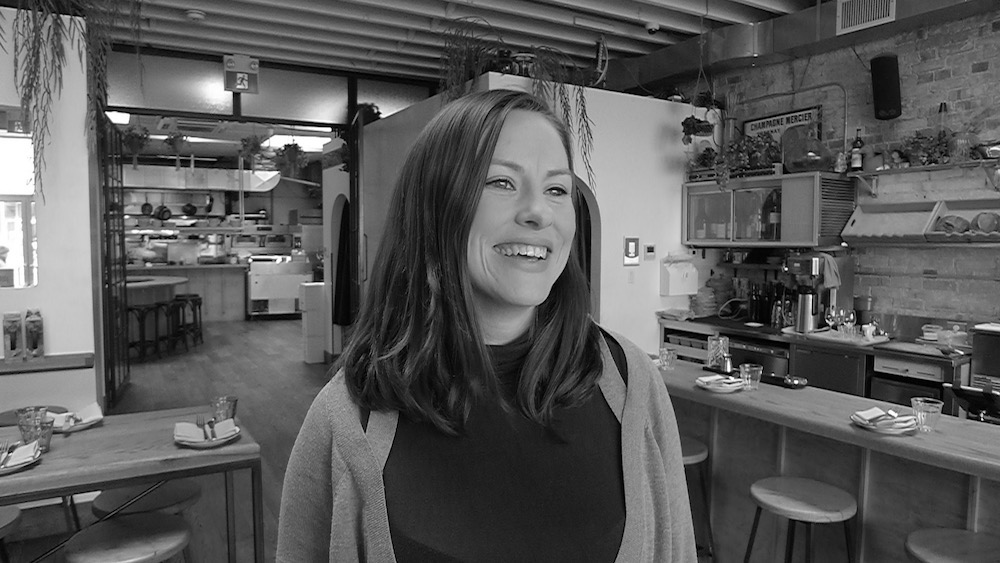
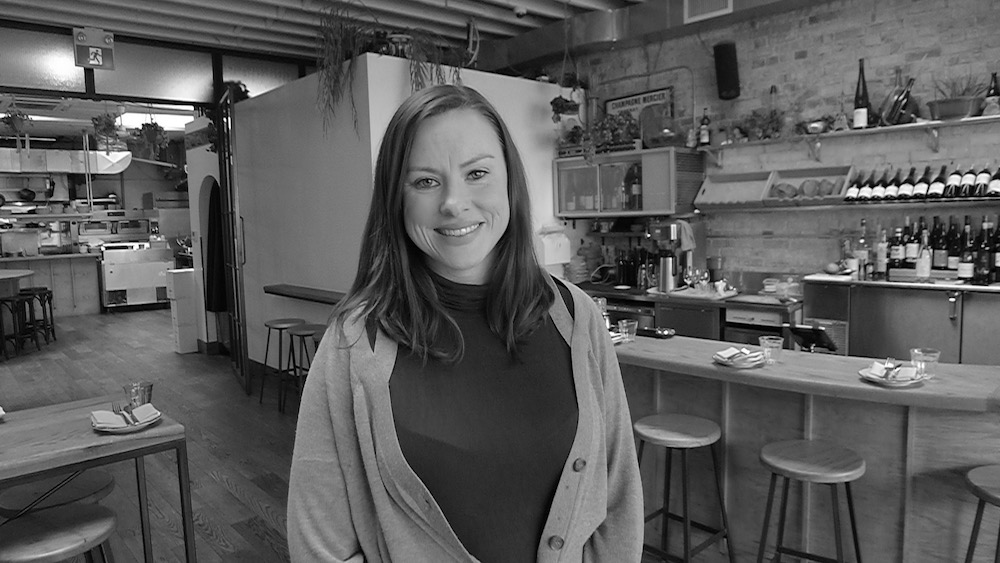

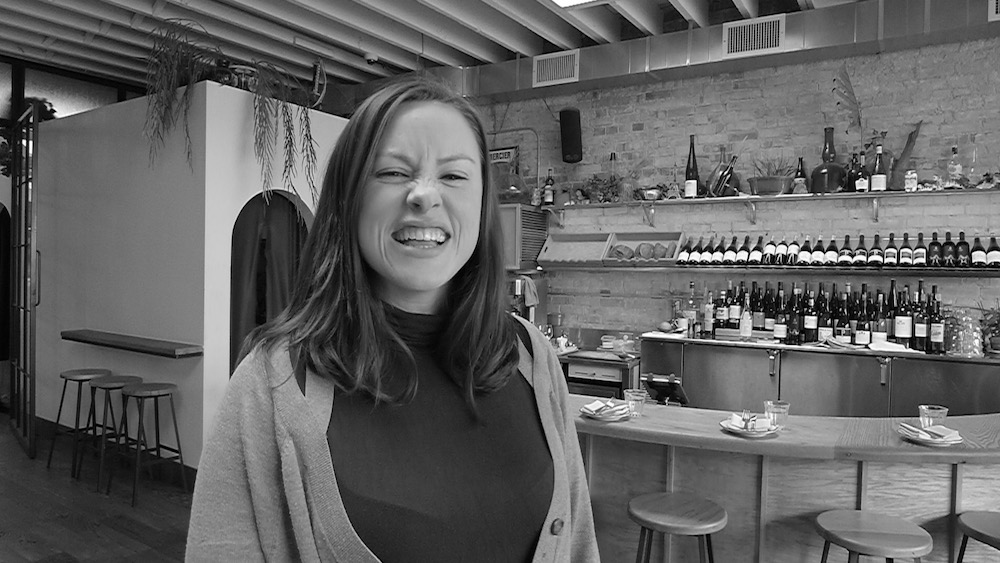
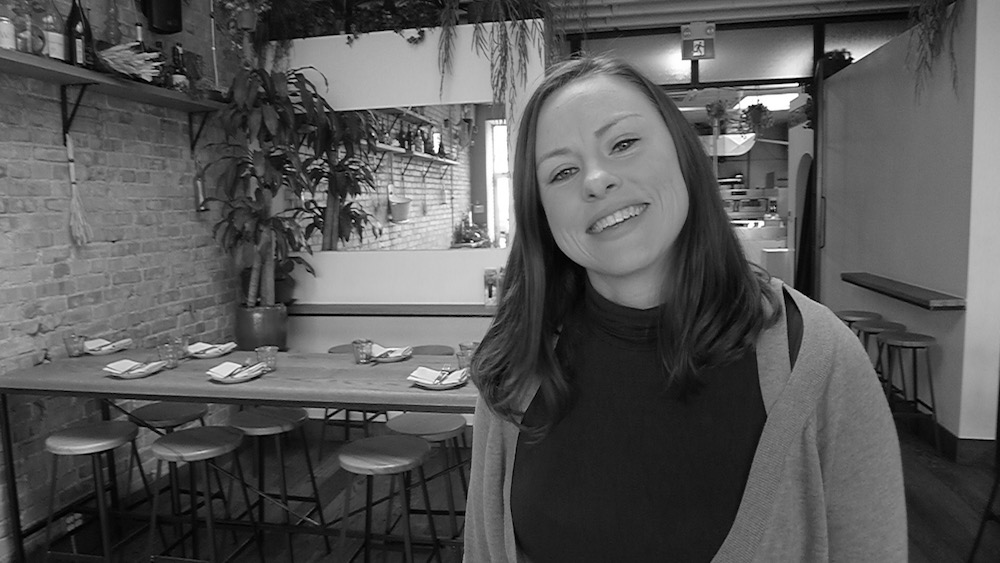
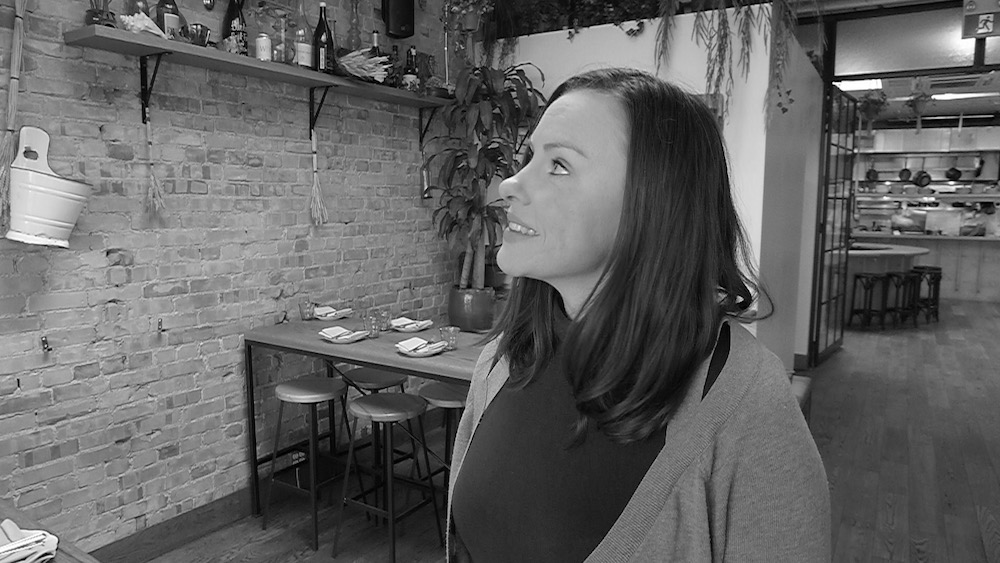



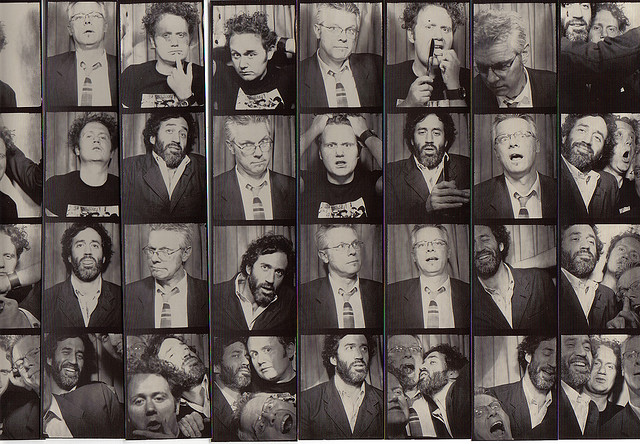



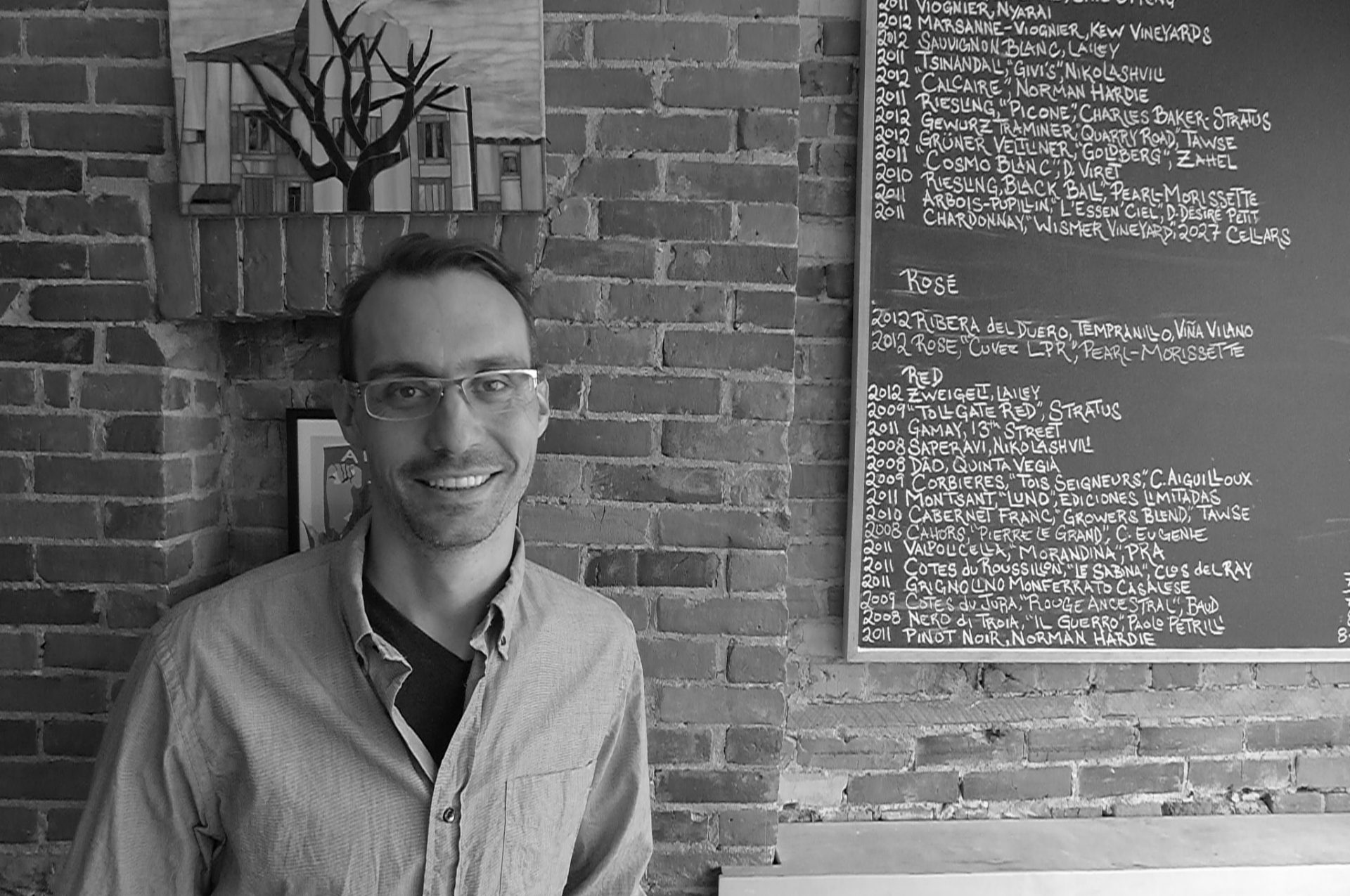
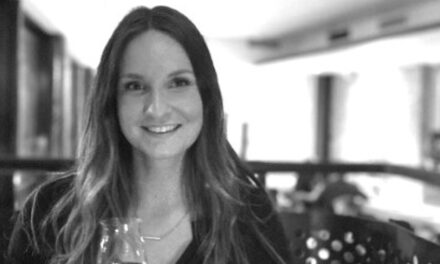

Very Interesting interview! I have to read twice to understand some critical points. Very brief! Thanks for sharing.